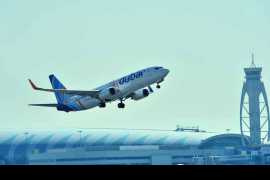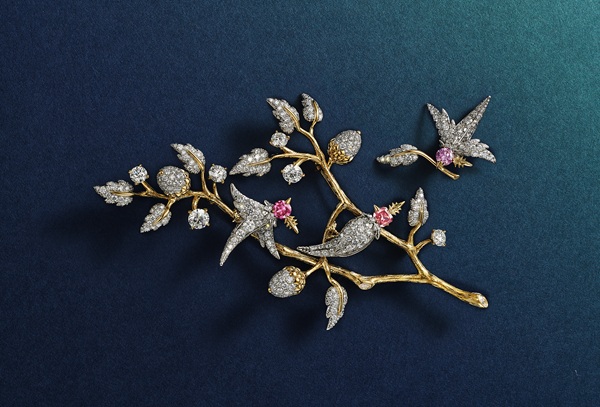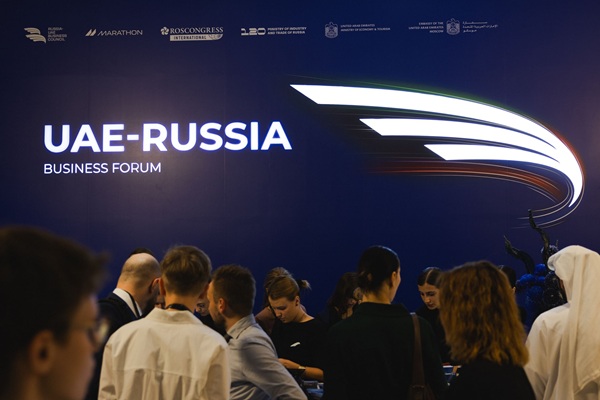Flydubai continues Russia push

Despite the slowdown in the Russian economy, flydubai is bullish about its long-term prospects in the country
13 December 2015
As the flydubai aircraft in made its final descent into the city of Novosibirsk in Siberia, we marvelled at the meandering rivers cutting through the industrial haze below.
The carrier’s inaugural flight into Novosibirsk in October, received a red carpet welcome at the airport where security officials dressed in furs greeted us.
Despite being less than six hours away, the Siberian capital has never before enjoyed a regular air link with Dubai. Officials are excited about the prospect of a new connection.
Speaking to the media, Novosibirsk’s transport minister Sergey Titov says the new route will provide a boost to the tourism industry – both for Russia and United Arab Emirates.
The Russian city boasts a population of 1.5 million people, with 14 million living within a radius of 600km. “Novosibirsk has the largest airport in the region and now we are putting in efforts to have faster trains collecting people and bringing them here to the airport,” he explains.
“This region has great economic prospects and a massive scientific cluster. And I think [the launch of flights] will help cooperation with the UAE to develop.”
Yet, despite all the optimism, the new route has now been suspended. Russian authorities failed to extend the approvals for the flights for the 2015/2016 winter schedule. No details have been disclosed about when the route will resume.
The route cancellation to Novosibirsk follows the suspension of another Russian route by flydubai earlier this year – from Dubai to Volgograd. That came about because of slowing demand.
The Russian economy, which is struggling both from the impact of the weak rouble and the drop in oil prices, is expected to contract by 3.8 per cent this year. This in turn has hit visitor numbers from the country.
Flydubai currently flies to nine Russian destinations including Moscow, Kazan, Yekaterinburg and the recently introduced Nizhny Novogorod. However, passenger numbers on Russian routes have dropped by 40 per cent in the last year, confirms senior vice president Jeyhun Efendi.
“These things obviously happen, but we hope it's only a temporary situation and we expect to see growth. We take a long-term view and our priority is to come to the market first, " he tells Gulf Business.
Currently, private charters operate most of the air traffic between the United Arab Emirates and several Russian cities.
“Some of the Russian carriers pulled out of the Dubai route simply because they were operating charter flights and couldn’t sustain their operations due to financial difficulties. Being a scheduled airline we are managing to maintain our routes,” he explains.
Despite the risk involved, Efendi says having regular flights helps the airline to gradually gain market share over charters.
“Tour operators and travel trade operators trust us because of our reliability, on-time departures, price and schedule stability.”
He adds: "We can also adjust our capacity depending on the numbers and demand. But so far the numbers make sense for us. That’s why we have added the routes.”
Awareness lacking
One of the biggest challenges to the building a wider network between the Gulf region and smaller Russian cities is a genuine lack of awareness says Efendi.
“Many people have not even heard of these places. There’s a real but different world out there, one that the Middle East doesn’t usually participate in. We are more linked to regions like Western Europe and Asia but the Russia and Commonwealth of Independent States market is a complex one,” he explains.
“Even in terms of tourism, Russia has many interesting resorts but I’m sure not many people have heard of them. We try to work with tourism boards as well so they promote their destinations and work with us,” adds Efendi.
Russia is making efforts to raise awareness of its tourism offering, confirms Russian Business Council chairman Igor Egorov. “The Russian National Tourism Office will shortly be opening in the UAE. It will facilitate travel and create awareness on the amazing possibilities in various parts of Russia,” he says.
The annual Global Village in Dubai also has a “grand Russian pavilion for the first time,” he states.
Visas also remain an issue – especially on the Russian side. But Egorov claims the Russian Business Council is holding discussions with authorities to push for the introduction of visa-free regulations.
“This will certainly increase the amount of tourists to Russia from the UAE, since currently most visitors are business travellers,” he argues.
Where next?
Effendi does concede that 2016 is still going to be challenging for the Russian market and that it is too early to expect a rebound.
“Following a capacity drop into Dubai and flight cancellations, by adding capacity we are trying to balance the market,” he explains.
There are no immediate plans for further expansion. Flydubai has already used all of its traffic rights into Russia.
“We do still see a lot of opportunities like St Petersburg, which is an interesting destination. We are not sure about next year but in the long term we will look at flying there,” he says.
Egorov also believes there should be more flights so that all major Russian cities are connected to the UAE. But he is not optimistic about Russian tourist numbers increasing over the next few months. Even if gradual growth comes as Russians adapt to the new rouble exchange rate.
On the other hand, he is more bullish on Russia’s tourism pull.
“We do believe travel to Russia will increase considerably due to the cultural, natural and historical places of interest and attractions such as hunting, fishing, extreme sports, the nightlife and cultural tourism.”
Clearly though, there is some way to go before Gulf tourists line the streets of Russian cities.
























